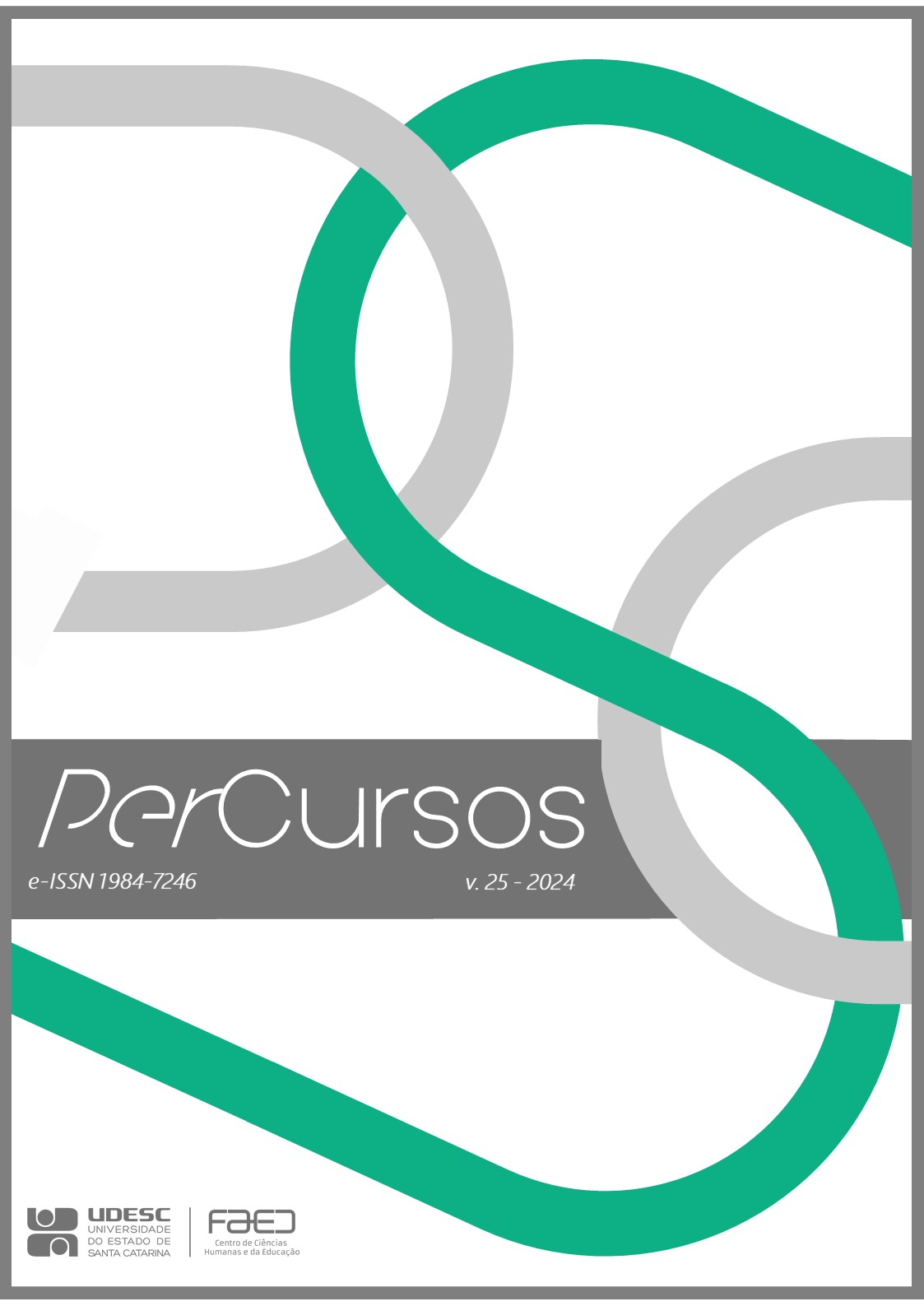Transhumanism, Sport, and Technology: Contemporary Tensions on the Limits of the Body
DOI:
https://doi.org/10.5965/19847246262025e0203Keywords:
transhumanism, body, technologies, high-performance sportsAbstract
This article explores transhumanism as a promise to overcome the limitations of the human body. The foundations of this philosophical movement are analyzed through the lens of René Descartes' philosophy, particularly the mind-body dualism reinforced by mercantile society. Next, the world of high-performance sports is examined as a vehicle for disseminating transhumanist ideals, given its emphasis on pushing the boundaries of biological endurance. Finally, the potential benefits and risks of a transhumanist society are discussed, based on the framework established throughout the analysis.
Downloads
References
: A SPACE Odyssey. Direção: Stanley Kubrick. EUA: Metro-Goldwyn-Mayer, Stanley Kubrick Productions, Hawk Films, 1968. 1 DVD (149 min), son., color.
APFEL-MARGLIN, Frédérique. Decolonizing knowledge. Oxford: Clarendon Press, 1996.
BARRY, Max. Homem-máquina. Rio de Janeiro: Editora Intrínseca, 2012.
DESCARTES, René. Discurso do método. São Paulo: Escala Educacional, 2006.
DESCARTES, René. Meditações. São Paulo: Editora Abril Cultural, 1983.
HARARI, Yuval Noah. Sapiens: uma breve história da humanidade. Porto Alegre: Editora L&PM, 2018.
HARAWAY, Donna J. Manifesto ciborgue: ciência, tecnologia e feminismo-socialista no final do século XX. In: TADEU, Tomaz (Org.). Antropologia do ciborgue: as vertigens do pós-humano. 2ª ed. Belo Horizonte: Autêntica Ed., 2009.
HAUSKELLER, Michael. Nietzsche, the overhuman and the posthuman: a reply to Stefan Sorgner. In: TUNCEL, Yunus (ed.). Nietzsche and transumanism: precursor or enemy? Cambridge Scholars Publishing, 2017. p. 32-36.
HOQUET, Thierry. Cyborg philosophie: penser contre les dualismes. Paris: Seuil, 2019.
MARCELLINI, Anne et al. Challenging human and sporting boundaries: the case of Oscar Pistorius. Performance Enhancement & Health, [s. l.], v. 1, n. 1, p. 3-9, 2012. Disponível em: https://www.sciencedirect.com/science/article/abs/pii/S221126691100003X. Acesso em: 17 ago. 2025.
MARIUTTI, Eduardo Barros. Do individualismo possessivo ao indivíduo possuído: a dissolução do projeto liberal de construção do indivíduo moderno. Texto para Discussão, Campinas, n. 393, p. 1-18, ago. 2020. Disponível em: https://d1wqtxts1xzle7.cloudfront.net/64212869/TD393-libre.pdf?1597770619=&response-content-disposition=inline%3B+filename%3DDo_individualismo_possessivo_ao_individu.pdf. Acesso em: 17 ago. 2025.
OLYMPO. Criação: Jan Matheu; Laia Foguet; Ibai Abad. Espanha: Netflix, 2025. 1 temporada (8 episódios). Série disponível na plataforma Netflix. Acesso em: 18 ago. 2025.
OS JOGOS OLÍMPICOS NA GRÉCIA ANTIGA: Olímpia antiga e os jogos olímpicos. Trad. direta do grego e moderno e notas de Luiz Alberto Machado Cabral. São Paulo: Odysseus Ed., 2004.
RAIOL, Raimundo Wilson Gama; ALENCAR, Evandro Luan de Mattos. Bioética e transhumanismo: uma discussão sobre as pessoas com deficiência e a ideia de ciborgue. Revista Brasileira de Direito Animal, [s. l.], v. 15, n. 2, p. 107-119, 2020. Disponível em: https://d1wqtxts1xzle7.cloudfront.net/78972855/21505-libre.pdf?1642431072=&response-content-disposition=inline%3B+filename%3DBioetica_e_Transhumanismo_Uma_Discussao.pdf. Acesso em: 17 ago. 2025.
ROCHA, André Campos; BARREIRA, Tiago Cabral. O dualismo mente-corpo em Descartes e suas implicações no debate científico contemporâneo. Rio de Janeiro: Editora Contemporânea, 2022.
SIMAS, Luis Antônio. Maracanã: quando a cidade era terreiro. Rio de Janeiro: Mórula, 2021.
STEINMANN, Michael. ‘But what do we matter!’: Nietzsche's secret hopes, and the prospects of transumanism. In: TUNCEL, Yunus (ed.). Nietzsche and transumanism: precursor or enemy? [S. l.]: Cambridge Scholars Publishing, 2017. p. 172-190.
ZOBOLI, Fabio et al. O corpo híbrido: análise midiática da participação do atleta Oscar Pistorius no Mundial de Atletismo de 2011. Revista Brasileira de Ciências do Esporte, [s. l.], v. 38, n. 1, p. 26-33, 2016. Disponível em: https://www.scielo.br/j/rbce/a/WHHxgJGVzshHbhQzQhPKj6s/?format=pdf&lang=pt. Acesso em: 18 ago. 2025.
Published
How to Cite
Issue
Section
License
Copyright (c) 2025 PerCursos

This work is licensed under a Creative Commons Attribution-NonCommercial 4.0 International License.


